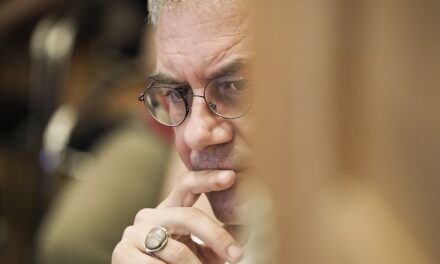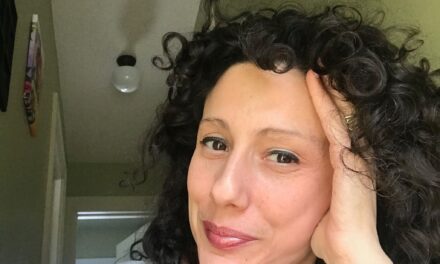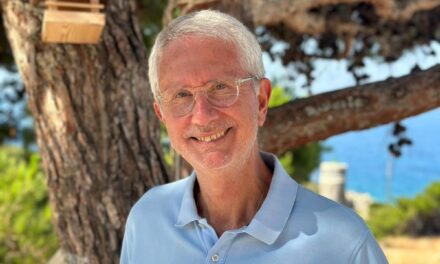Spyros Goulas was born in 1991 in Athens. He is a graduate from the Computer Engineering & Informatics Department of University of Patras and is currently working as a computer engineer. His work has been published at The Books’ Journal, Diastiho, Culture Book, Kariothrafstis and Vlavi magazines. He has participated in two poetry anthologies published by the University of Patras’ literature team and in one published by Culture Book.
His first poetry collection They dress up with their last year clothes (Polis, 2020) has been awarded the debut poet award “Giannis Varveris” of the Hellenic Authors’ Society and the State Literature award for debut author. His second poetry collection Definitive Phenomena (Polis) was published on February 2024.
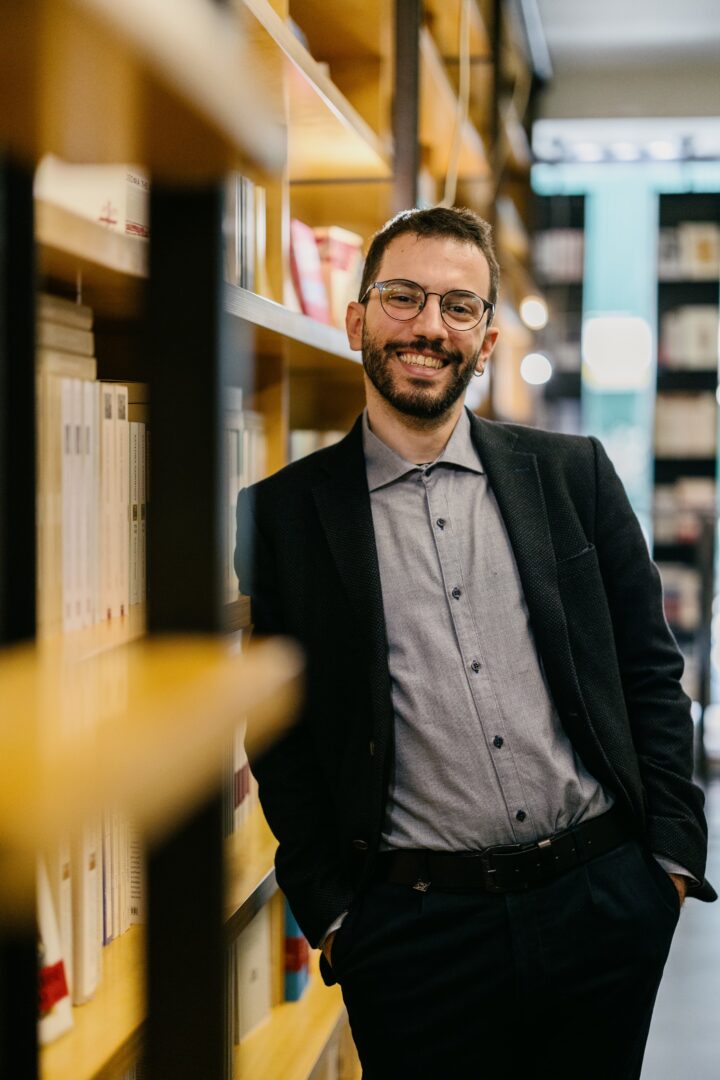
© Angelos Giotopoulos
Your second wring venture Οριστικά Φαινόμενα [Definitive Phenomena] was recently published by Polis. Tell us a few things about the book.
There are three major underlying themes in this book. The first theme is the challenges one faces in today’s fragmented and disoriented society, the idea that each day presents itself as a challenge to which one must rise. The second theme is that of “attraction as alienation”, the notion that two people can be physically close but emotionally distant, by choice or circumstance. The final theme is that of “choice”, like a body with multiple heads. Every head issues a command, but the body can only heed one and that means only one head can exist.
There are many references to heads that are in one way or another removed: heads that roll, heads that are decapitated, heads that unscrew. Everything falls back to the theme of making choices which determine one’s self, which itself is a continuation of the theme of my previous book, the construction of “a self that endures”. If one endures, the next logical step is to define themselves. And what better way to define yourself than to choose?
In her review of the book, Eleni Patsiantzi commented that “the word ‘phenomena’ is usually associated with everything that happens in nature, in society, in life and is perceived through the senses. However, in the field of philosophy, with which poetry is organically connected, phenomena correspond to the facts of experience as presented to consciousness and do not always correspond to objective reality”. Could you elaborate on the ‘phenomena’ your poetry delves into?
They are phenomena in the sense that they occur outside of our control, like forces of nature with which there is no negotiation, but at the same time, experiencing them and choosing how to address them, while subjective, defines the individual, hence they are definitive. So it’s not the individual that defines the phenomena, but the phenomena that define the individual.
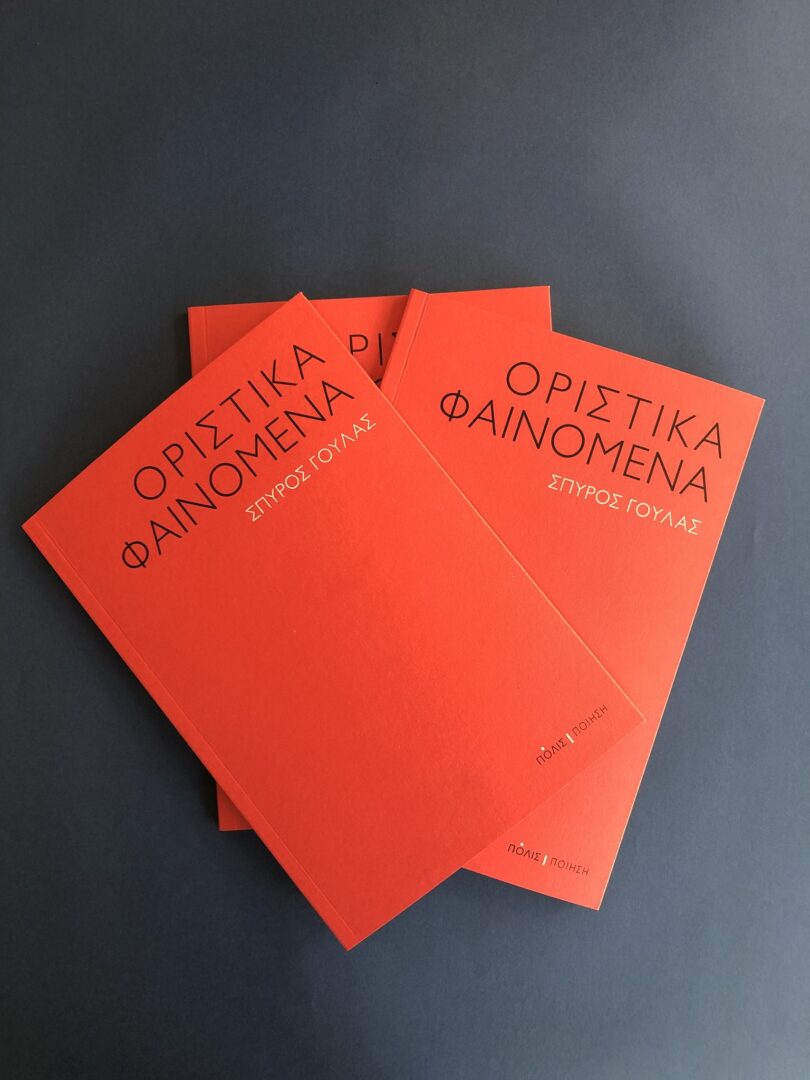
Where does personal, in its fragmented and traumatized nature, meets the social and the political in your poetry?
The fragmented individual exists as a product of a fragmented society. There is no way to accurately write about this person without implicitly also writing about the society that shaped it. When I write about a person feeling lonely, while at the embrace of its tinder hookup, this is an aspect of our current social lives. When I write about an individual so entirely estranged from the political scene it believes it participates in, through minimal interaction and from the comfort of its living room, this is also an aspect of our politics. The belief that we are helpless, as individuals, against the tides of time, the fear that we live in a headless era, cut off from a zeitgeist that would give us a sense of direction or purpose, that is also a facet of our society. So, the personal meets the social and the political at the realisation that a deeply personal experience has been shaped and presented by the unique challenges of the era one belongs to. These things are connected.
More generally, how does poetry converse with the world it inhabits? Could literature be used to imagine what could be radically different realities?
Those that write poetry approach the surrounding world at different angles and with different velocities. The area one chooses to focus into and the matters they wish to write about depend entirely on what they need to express. Sometimes a poem is not a conversation with the world, but an accusation against it or a testimony in favour of it. Sometimes it’s just a band-aid fix to quickly address its imperfections. Regarding the second question, I believe literature can be used to imagine radically different realities but not necessarily make them happen. I do believe however that literature can radically change an individual. Can a radical person create a radical new reality? Can our era still produce one?
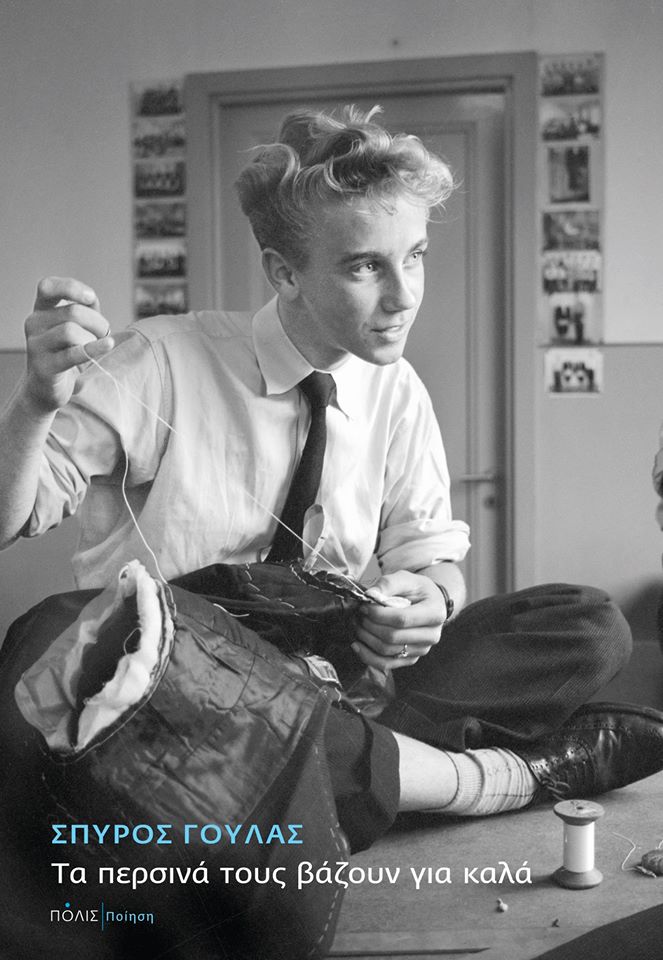
What role does language play in your writings? Has your professional activity as a computer engineer and programmer influenced your poetic language?
I like starting my poems from a specific phrase that I want to use, or a world play that I find attractive. Even if the primary reason is to express a feeling or a thought, the specific language through which they will be presented is my first concern. I want to write what I consider to be modern poetry. English words, word plays, swearings and everyday language coexist in my writings because that’s the language I use, that’s how I speak. This is not my definition of what modern poetry is or should be, merely my personal addition to the ever going conversation about it. My professional activity has little to do with my poetic language, but the unfathomable amount of hours I have spent doom scrolling on social media did influence it. I used to write longer poems.
How do young writers relate to global literary trends? Where does the local meet the national and the universal?
I am honestly not sure. I think there has been an increase in poems of shorter length, clearly defined meaning and a macro-period, almost prose-like speech. And I can’t say for sure if this reflects a global literary trend or the amputation of our attention span by social media (maybe that’s the global trend). The major themes in younger people’s work seem to be social injustice, gender equality, queer representation and self-curation (regarding the latter, I first heard it from professor Vassilis Lambropoulos and I find it particular insightful). I think there is a conscious effort to reach out and connect. At least that’s my perspective on the matter.
*Interview by Athina Rossoglou
TAGS: LITERATURE & BOOKS | READING GREECE


